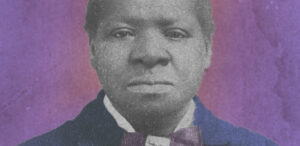
WSJ – June 18, 2022
Heroes Arose From the Brutality of Slavery
As a counterpoint to the ‘1619 Project,’ consider the story of Biddy Mason, who not only won her freedom but achieved great wealth.
By Robert L. Woodson Sr. | 694 words
When we talk about black history, the first images that come to mind often reflect the brutality of slavery. We need to remember that brutality, but we should also remember the resistance to slavery, which was ultimately successful. These heroic black figures from the past teach us that we all have the capacity to succeed, even against extraordinary odds.
Bridget Mason, later nicknamed Biddy, was born in 1818 as a slave to a Mississippi man named Robert Smith. After walking 1,800 miles to follow Smith to California, she successfully sued him for her freedom. As a free woman, Biddy worked as a midwife and nurse, carefully saving all she could. She used her savings to buy land in the rapidly growing city of Los Angeles. She eventually became the wealthiest and most influential black American west of the Mississippi, and she used her fortune to fund charities and serve the poor.
The question for us is: What parts of this story do we want to know more about? Do we want to learn more about how poorly Robert Smith treated Biddy? How her feet hurt when she was walking behind that wagon train, or how her back ached while she set up and broke down the camp, all while caring for her own young children?
Or do we want to know more about how in the world someone born into slavery was able to sue successfully for her freedom? How she was able to save her modest earnings, how she decided which properties to buy and what kind of charities she chose to support and why?
The New York Times’s “1619 Project” posited that the evil of slavery was the heart of America’s founding. If that is so, the only American thing about Biddy Mason’s story is what Robert Smith did to her. But her experience in slavery doesn’t define what her life meant to her or to the countless people she touched. What she did to get free, and what she did once free, is every bit as American as the rest of her story.
A group of scholars rebuked the “1619 Project,” expressing reservations about it and the accompanying curriculum. They said the project contained factual errors that suggested “a displacement of historical understanding by ideology.” More important, the “1619 Project” defined all American history as the story of such men as Robert Smith, who was average at best, while such remarkable woman as Biddy Mason can be understood only as Robert Smith’s slave.
Stories such as Biddy Mason’s, taught with even reasonable competence, can inspire schoolchildren of all races and backgrounds. Who wouldn’t be inspired by someone who, forbidden to learn to read or write, sponsored the construction of the first black church in Los Angeles, which has thousands of members today? Such heroes as Mason can give all of us, regardless of race, a framework for understanding our past and building our future together. They can give us the tools to reconcile with one another and discern justice in light of historical reality.
When Americans discuss our shared past freely, coming independently to moral conclusions, we open the door to real and lasting progress. Young people in the next generation must learn that they are agents of their own uplift and that they do not need to wait for an external force to rescue them. If our children lack models of excellence and inspiring stories to which they can connect, then we have lost what education should be about.
Our history, and how we talk about it, shapes our future. Black history is part of American history, and we are all co-authors of the history we will make. We can and we must talk about black history without weaponizing it. We can and we must elevate black voices without descending into shouting matches.
Let’s talk about the entirety of stories such as Biddy Mason’s. Let’s talk about how to make the discussion and teaching of American history—including black history—open, complete and honest.
Mr. Woodson is founder and president of the Woodson Center and editor of “Red, White and Black: Rescuing American History From Revisionists and Race Hustlers.”
The Wall Street Journal
